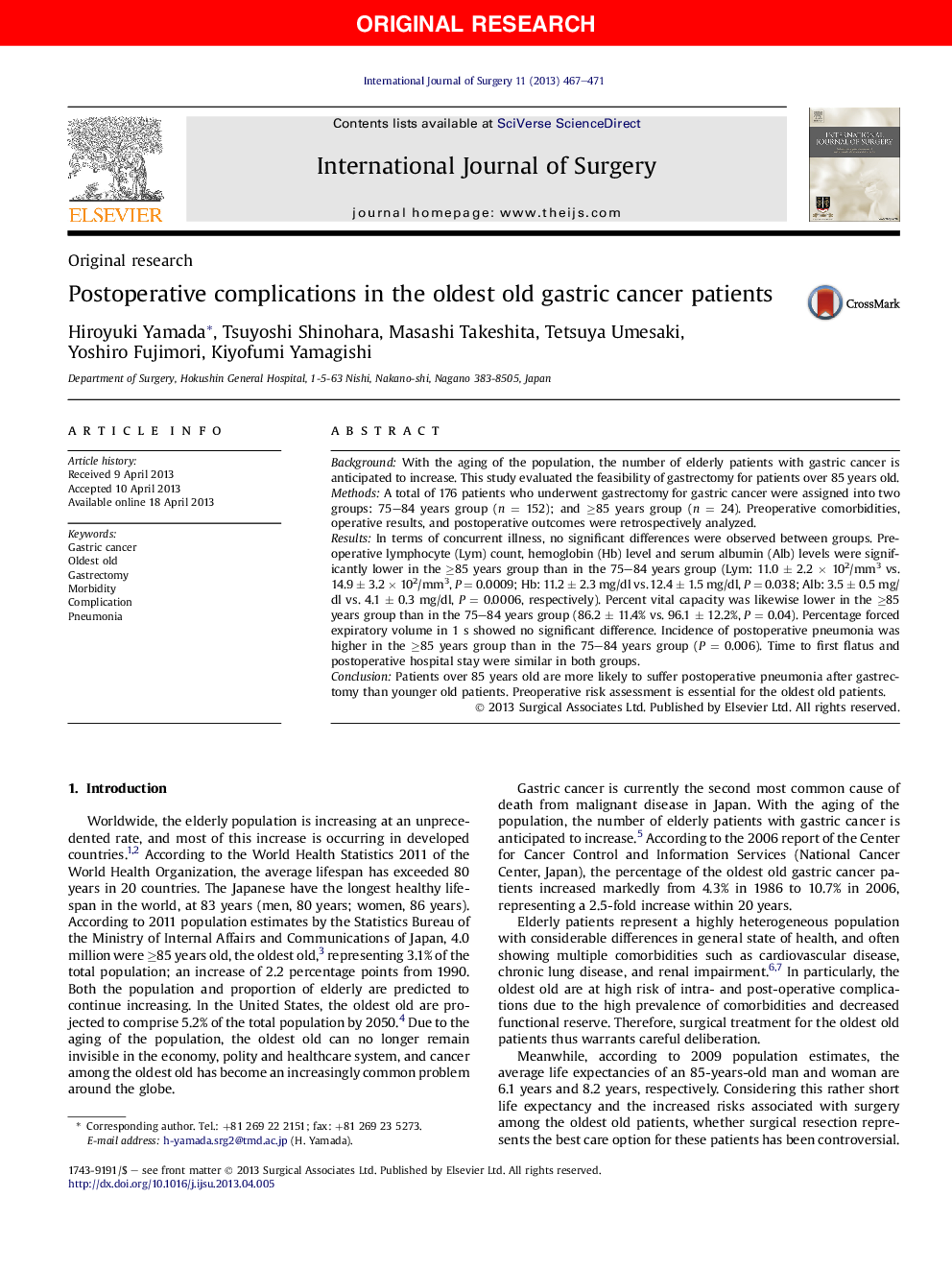| Article ID | Journal | Published Year | Pages | File Type |
|---|---|---|---|---|
| 4286710 | International Journal of Surgery | 2013 | 5 Pages |
BackgroundWith the aging of the population, the number of elderly patients with gastric cancer is anticipated to increase. This study evaluated the feasibility of gastrectomy for patients over 85 years old.MethodsA total of 176 patients who underwent gastrectomy for gastric cancer were assigned into two groups: 75–84 years group (n = 152); and ≥85 years group (n = 24). Preoperative comorbidities, operative results, and postoperative outcomes were retrospectively analyzed.ResultsIn terms of concurrent illness, no significant differences were observed between groups. Preoperative lymphocyte (Lym) count, hemoglobin (Hb) level and serum albumin (Alb) levels were significantly lower in the ≥85 years group than in the 75–84 years group (Lym: 11.0 ± 2.2 × 10²/mm³ vs. 14.9 ± 3.2 × 10²/mm³, P = 0.0009; Hb: 11.2 ± 2.3 mg/dl vs. 12.4 ± 1.5 mg/dl, P = 0.038; Alb: 3.5 ± 0.5 mg/dl vs. 4.1 ± 0.3 mg/dl, P = 0.0006, respectively). Percent vital capacity was likewise lower in the ≥85 years group than in the 75–84 years group (86.2 ± 11.4% vs. 96.1 ± 12.2%, P = 0.04). Percentage forced expiratory volume in 1 s showed no significant difference. Incidence of postoperative pneumonia was higher in the ≥85 years group than in the 75–84 years group (P = 0.006). Time to first flatus and postoperative hospital stay were similar in both groups.ConclusionPatients over 85 years old are more likely to suffer postoperative pneumonia after gastrectomy than younger old patients. Preoperative risk assessment is essential for the oldest old patients.
